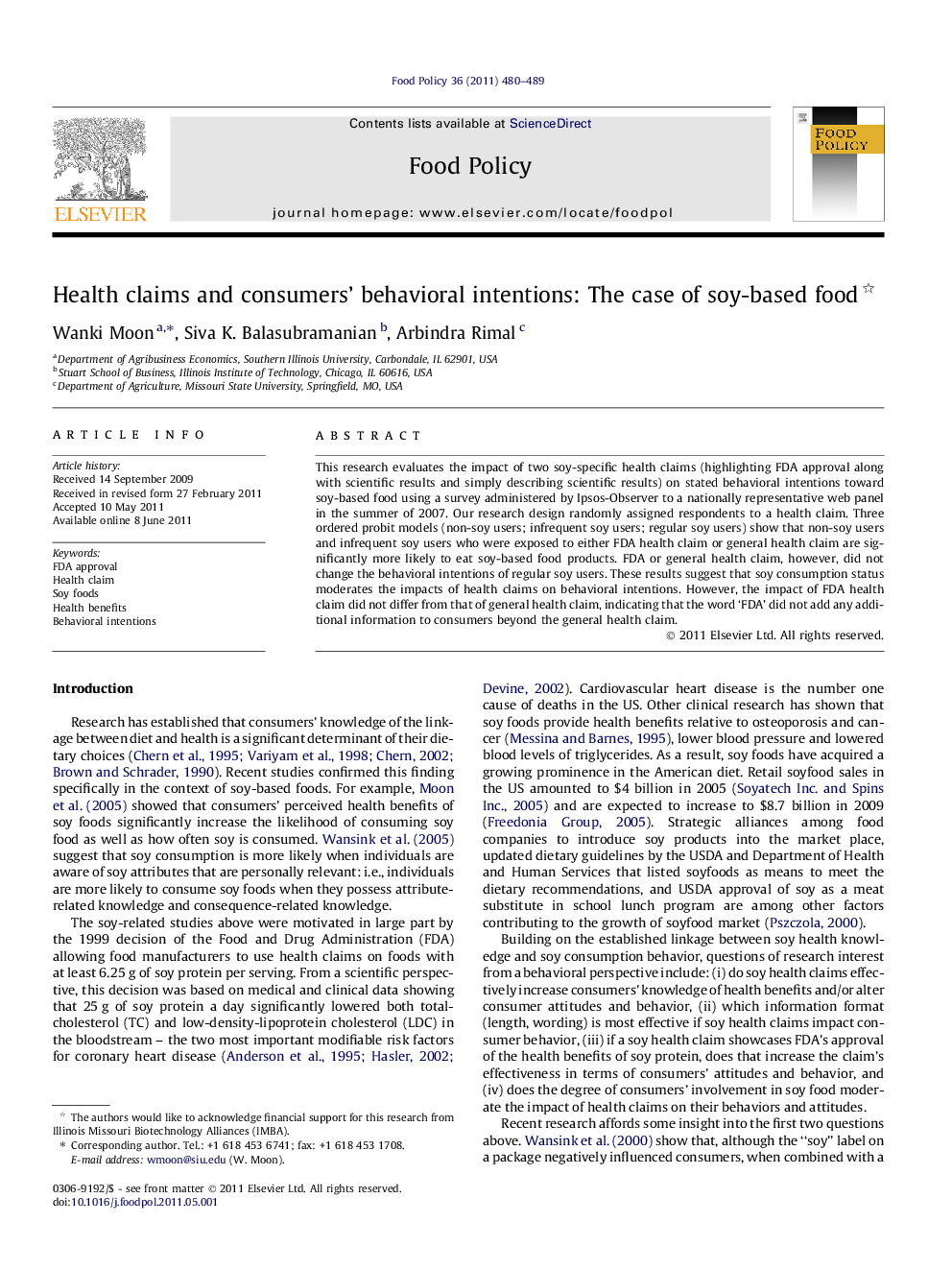| Article ID | Journal | Published Year | Pages | File Type |
|---|---|---|---|---|
| 5070923 | Food Policy | 2011 | 10 Pages |
This research evaluates the impact of two soy-specific health claims (highlighting FDA approval along with scientific results and simply describing scientific results) on stated behavioral intentions toward soy-based food using a survey administered by Ipsos-Observer to a nationally representative web panel in the summer of 2007. Our research design randomly assigned respondents to a health claim. Three ordered probit models (non-soy users; infrequent soy users; regular soy users) show that non-soy users and infrequent soy users who were exposed to either FDA health claim or general health claim are significantly more likely to eat soy-based food products. FDA or general health claim, however, did not change the behavioral intentions of regular soy users. These results suggest that soy consumption status moderates the impacts of health claims on behavioral intentions. However, the impact of FDA health claim did not differ from that of general health claim, indicating that the word 'FDA' did not add any additional information to consumers beyond the general health claim.
⺠Regression analyses show that non-soy users and infrequent soy users who were exposed to either FDA health claim or general health claim are significantly more likely to eat soy-based food products. ⺠However, neither FDA health claim nor general health claim did change the behavioral intentions of regular soy-users. ⺠These results suggest that soy consumption status moderates the impacts of health claims on behavioral intentions. ⺠The impact of FDA health claim did not differ from that of general health claim. ⺠Indicating that the word 'FDA' did not add any additional information to consumers beyond the general health claim.
